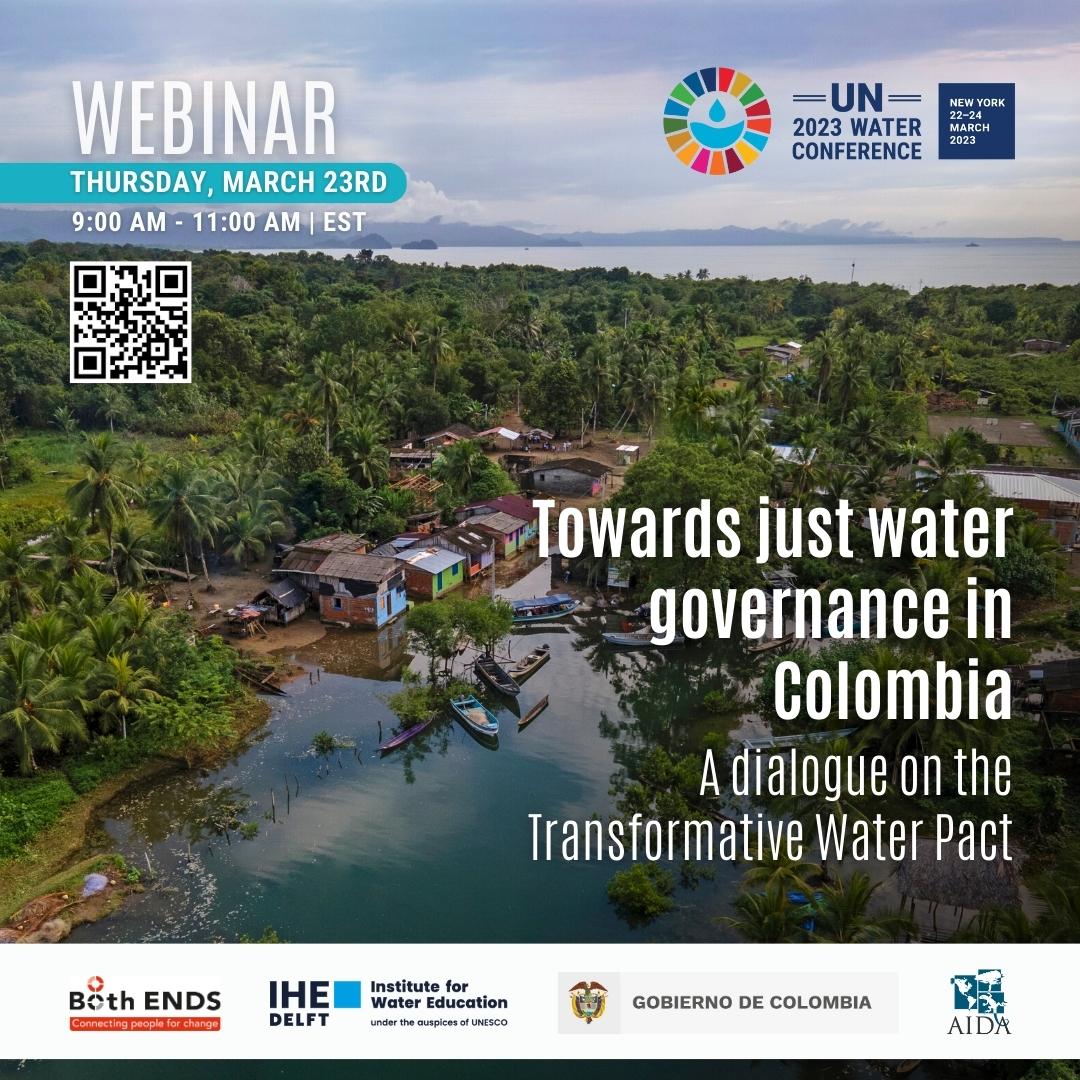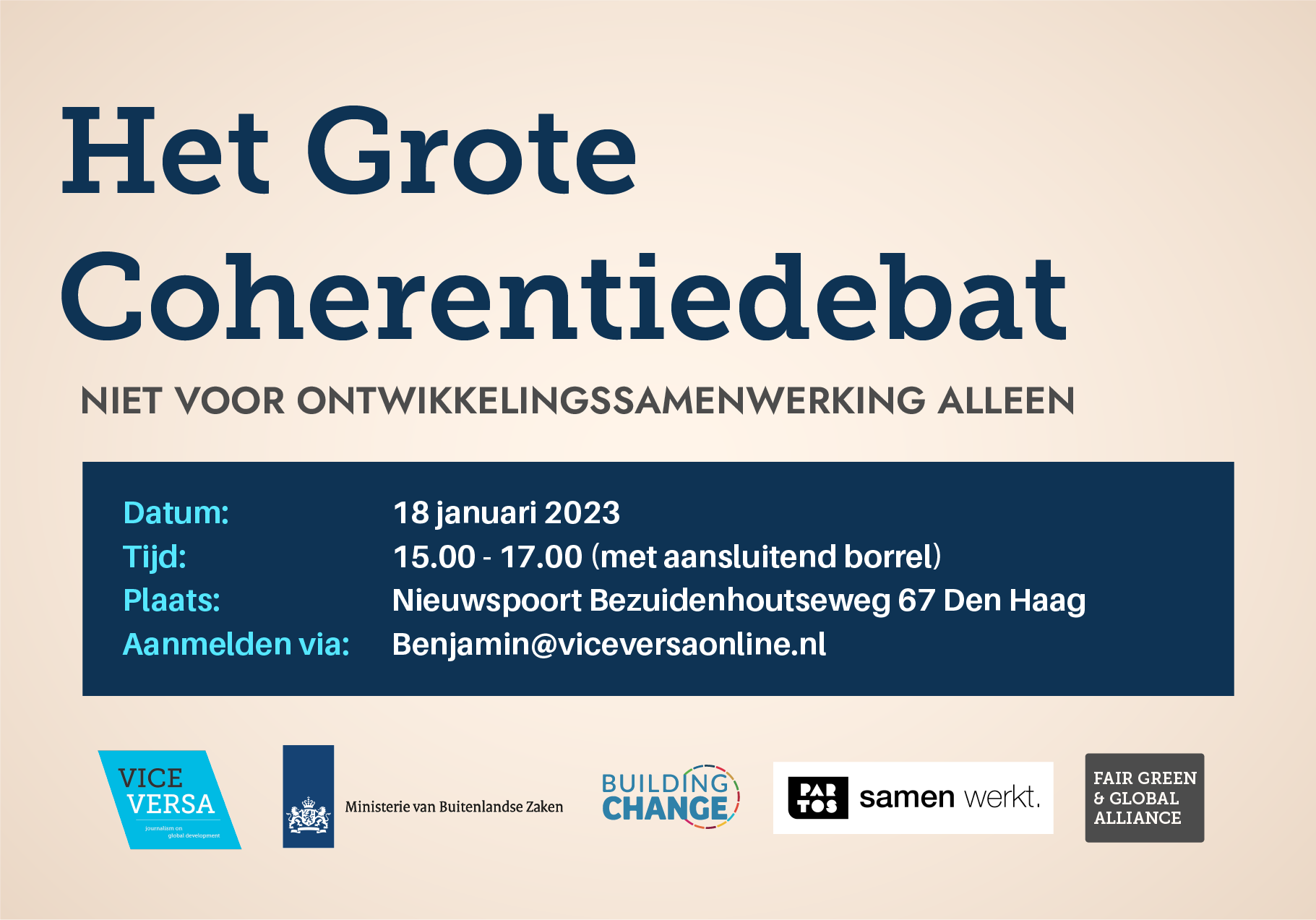
This event will present The Transformative Water Pact (TWP), an innovative framework for water governance that has been developed by environmental justice experts from around the world. The TWP will serve as a starting point for dialogue between representatives of the government of Colombia, academia, regional and international NGOs in relation to Colombia's current ambitions in multi-scalar water governance.


Op zondag 5 maart zijn wij aanwezig op de Feminist March!
Op de Dam in Amsterdam begint om 13 uur de eerste Feminist March (die tot nu toe Women's March heette).
Both ENDS is erbij en doet samen met ActionAid, Opzij, Simavi, WECF en WO=MEN mee in het blok "Feministen voor Klimaatrechtvaardigheid". Vrouwenrechten en klimaat zijn onlosmakelijk met elkaar verbonden. Want klimaatverandering treft vrouwen vaak het hardst, terwijl zij er relatief het minst aan hebben bijgedragen. Daarnaast zijn vrouwen voorlopers waar het gaat om de strijd tegen klimaatverandering, maar is gendergelijkheid zelden prioriteit in klimaatbeleid en ontvangen vrouwen maar weinig financiele en politieke steun voor hun initiatieven.
We verzamelen voor Madame Tussauds op de Dam. Om op de hoogte te blijven van verzameltijd e.d., kun je je aanmelden bij ActionAid, de hoofdorganisator van dit blok.

Both ENDS and the Land Portal Foundation invite you to the fourth webinar in the Whose Land? Inclusive Pathways to Land Governance series. This fourth Whose Land? webinar will focus on the question: How can donors fund land governance initiatives through an inclusive process?
More information about this event is available on Landportal.org

Om de duurzame ontwikkelingsdoelen (SDG's) - onder andere op het gebied van armoedebestrijding en voedselschaarste - te bereiken kijkt de politiek vooral naar hoe ontwikkelingssamenwerking daaraan kan bijdragen. Maar dat is lang niet het hele verhaal. Nederland is zeer actief in het buitenland, in handel, investeringen, landbouw, veeteelt, infrastructuur, dienstverlening etc. Ook en juist dáár moet aan knoppen gedraaid worden om de SDG's te halen.


UNFCCC-COP side event
Food systems account for 33% of GHG emissions, but receive only 3% of climate finance. Climate finance is urgently needed to fund the food systems solutions that can have real impacts and wide-ranging benefits in a diversity of contexts. How do we improve on current funding pathways?
Join this UNFCCC side event to find out more!

UNFCCC-COP side event
In this session hosted by NTFP-EP and the Global Alliance for Green and Gender Action (GAGGA), we will discuss the crucial steps to be taken to make gender-just climate finance a reality.

De landen en personen die het minste bijdragen aan klimaatverandering hebben het meeste last hebben van overstromingen, droogte en andere milieurampen. Wie komt voor hen op bij de klimaattop die van 6-18 november in Egypte plaatsvindt? En wat zijn de onderwerpen waar het écht over moet gaan?

Both ENDS and the Land Portal Foundation invite you to the third webinar in the Whose Land? Inclusive Pathways to Land Governance series. This third Whose Land? webinar will showcase gender transformative approaches on women's land rights. Gender transformative approaches are defined by women acting as agents of change, transforming structural barriers and redefining gender norms. These approaches facilitate the participation of women in land governance decision-making processes, but require closing the land data gender gap.
Register here

Er gaat nog altijd veel meer geld naar de fossiele industrie dan naar duurzame oplossingen. Banken, pensioenfondsen, verzekeraars en overheden blijven investeren in de fossiele infrastructuur waarmee ze mens en natuur in gevaar brengen. Wij roepen daarom op dat financiële instellingen stoppen met het financieren van de klimaatcrisis.
Loop mee met ons blok tegen fossiele financiën op de volgende klimaatmars!

Both ENDS and the Land Portal Foundation invite you to the second webinar in the Whose Land? Inclusive Pathways to Land Governance series, which will focus on the opportunities and constraints of civil society organizations (CSOs) and local communities in advocating for more open land data and in harnessing its power for improved land governance.

Join us this Saturday the 28th of May for an inpiring session about the role of agro-ecology in the trasformation to a future proof food and farming system on the African continent (and beyond).

Join us for an open space for a reflection and exchange on a new dataset, developed by WRI, to monitor regreening efforts, and its applications in the Sahel.
In the drylands of Africa, land degradation threatens the livelihoods of millions of people. Fortunately, there are promising initiatives emerging all over the continent that are turning the tide. Throughout the Sahel, for example, vast tracts of land along the Great Green Wall have been restored by local communities. They have nurtured the plants that spontaneously spring from the soil, protecting young sprouts from cattle and other hazards.